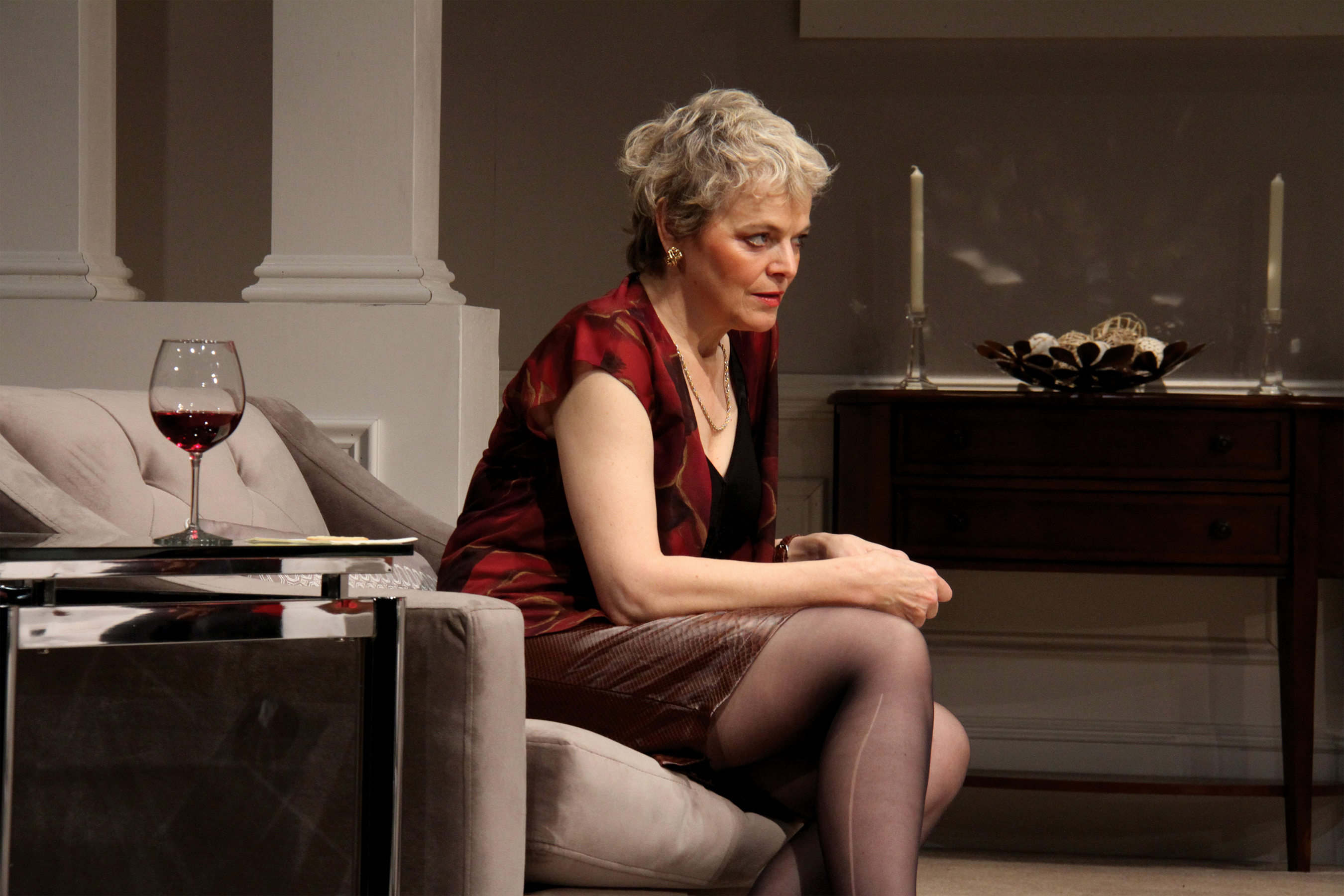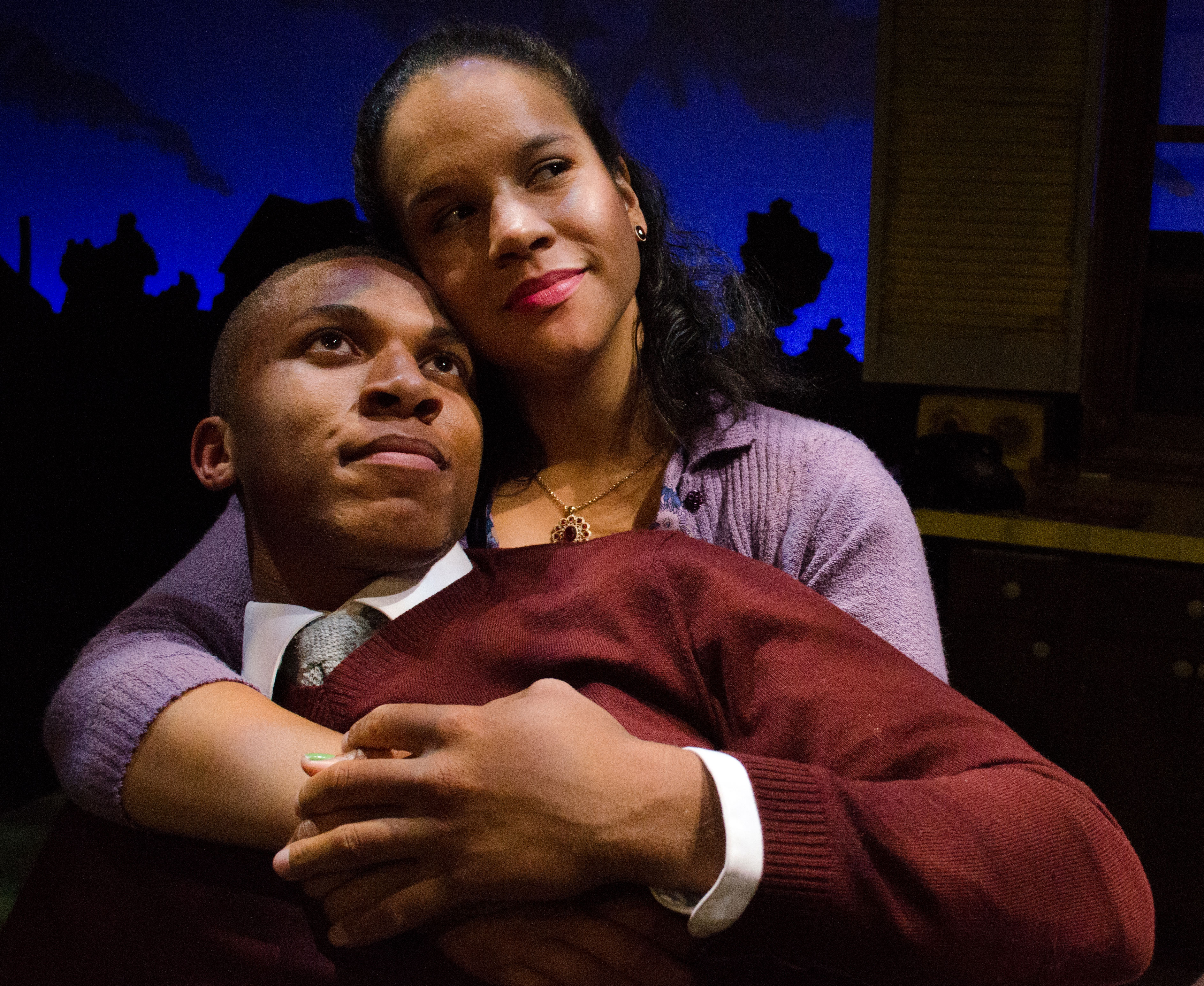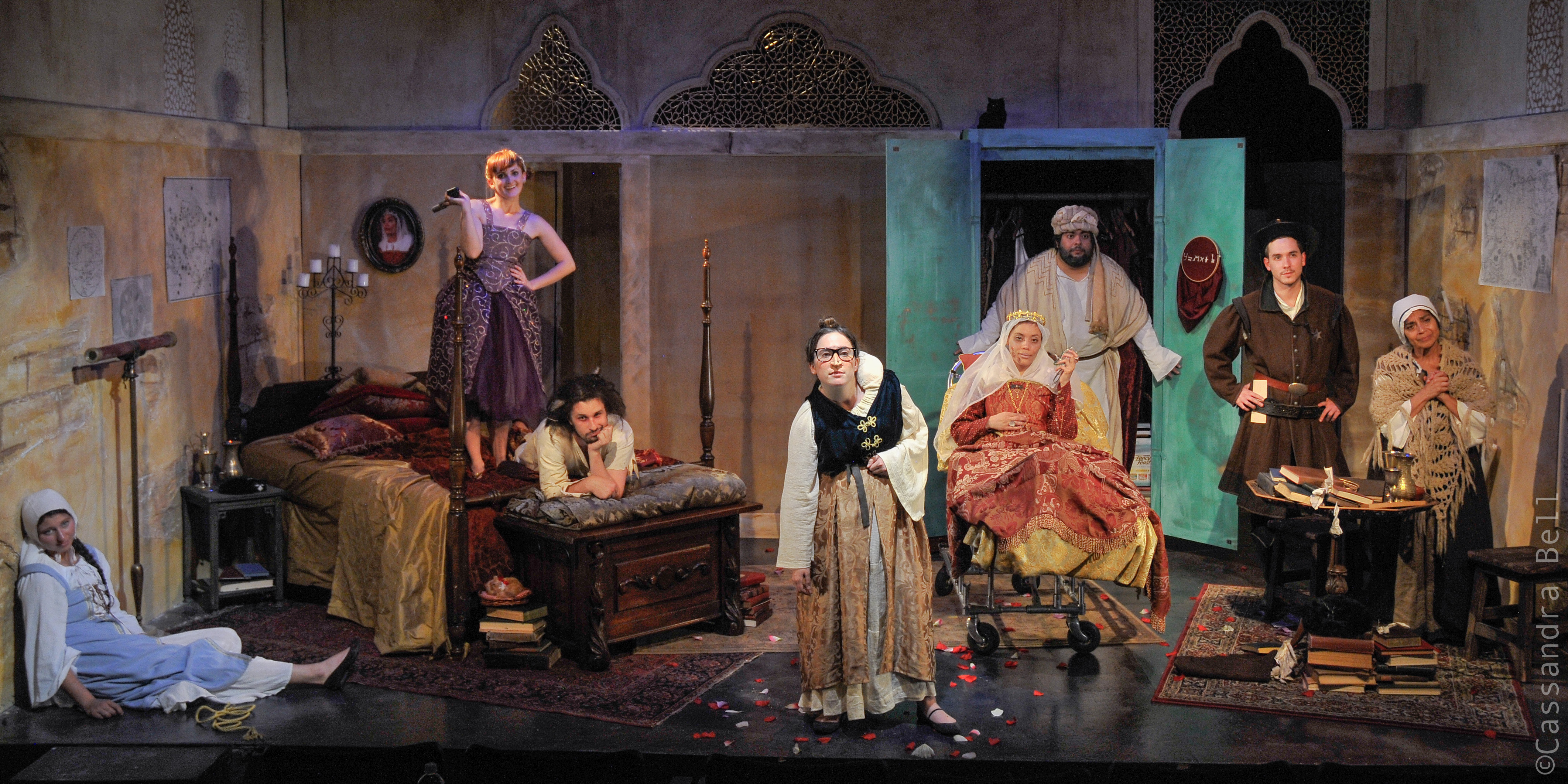My five sisters still live close to where my mother’s third husband (of six) moved us in grade school: El Paso, Texas. They are all defiantly blue-collar, and most never finished high school. To get away from our alcoholic and abusive parents, they did what so many did—got pregnant and married (often in that order), just like my late mother. When one sister recently heard I was in Pisa, she asked what I was doing in France. Sometime later, she expressed appreciation for my correcting her use of the word “regiment” instead of “regimen” when talking to her doctors. She told me this was funny. We both knew it also hurt.
David Lindsay-Abaire would understand. Class envy gets an up-close look in his walloping good dramedy, which considers two lives connected by a Boston subway line that appear to be in parallel universes.
Margie (Ellen McLaughlin) is a true “Southie” who’s always lived paycheck to paycheck while also providing for a mentally handicapped adult daughter needing constant supervision. At the outset of Good People, she’s fired from her job as a checker at the Dollar Store. Margie can’t get to work on time—mostly because Dottie (Cynthia Lauren Tewes), her scheming, slothlike landlady, doesn’t care for waking up in time to watch Margie’s daughter. Now Margie is out of a job, rent’s overdue, and Dottie’s ready to move her relatives into Margie’s apartment.
Wanting to explore every option, Margie takes the advice of her gal-pal Jean (Marianne Owen) to look up an old boyfriend who “escaped” South Boston and now enjoys a successful practice as a physician. That’s where the play lifts off in earnest, as Mike (John Bolger) tries to have it both ways—he’s a well-to-do doc, but he wants everyone’s respect as a self-made man. Margie sees it differently. To her, he’s nothing more than “lace-curtain Irish,” meaning a guy who got lucky and now considers himself superior to the Southies he left behind.
Most of the second act takes place in Mike’s Chestnut Hill home—a swank crib boasting more off-white than a chapter of Moby Dick. There, Margie forces Mike to confront his past as his wife (Zakiya Young) looks on in disbelief. Lindsay-Abaire has a gift for capturing women at their most courageous and conniving—and director David Saint lets his actresses rip. Unfortunately, the male characters are cardboard cutouts: Dollar Store manager Stevie (Eric Riedmann) turns out to be a beleaguered good samaritan, and Dr. Mike (especially as portrayed by Bolger) can’t seem to stay in the moment long enough to look at himself. As a result, the tone wavers somewhere between Good Will Hunting and a top-notch sketch from The Carol Burnett Show.
If the text is imperfect, the tech work is stunning, thanks to James Youmans’ sets and Charlie Morrison’s lighting. You won’t find better craft anywhere in the industry. And a note to composer/sound designer Scott Killian: We want those set-change tunes expanded into full-length songs we can buy in the lobby, please. Repertory Theatre, 155 Mercer St. (Seattle CEnter), 443-2222, seattlerep.org. Runs Wed.–Sun. Ends March 31.
Kevin Phinney
Modern Masterpieces
McCaw Hall, 321 Mercer St. (Seattle Center), 441-2424, pnb.org. $28–$173. 7:30 p.m. Thurs.–Sat. & 1 p.m. Sun. Ends March 24.
In some alternate universe, Twyla Tharp is teaching upper-level mathematics and experimental physics to graduate students. In this universe, she’s applying those concepts to dancing bodies, and In the Upper Room is one result. The closing work in Pacific Northwest Ballet’s “Modern Masterpieces” program, the 1986 dance combines breakneck ballet, fiendishly complex modern sequences, and a wealth of pop-culture references. It doesn’t leave the audience humming a tune so much as vibrating in sympathy with the cast as they hurtle through space to Philip Glass’ valiant score.
The program opens at the opposite end of the spectrum, with George Balanchine’s sublimely contemplative 1941 Concerto Barocco, which translates Bach into kinetic terms. Balanchine assigns two violin lines to a pair of female soloists, so that we follow the music’s call and response pattern through their dancing, while the corps and an intermittent male partner amplify the structure. The movement is so exposed and the patterns so clear that the work is a 20-minute final exam in ballet skills for everyone onstage.
Between these bookends are a pair of works that take very different approaches to ballet conventions. Ulysses Dove came from the modern-dance world, but relished the opportunity to use virtuoso ballet vocabulary. His Dancing on the Front Porch of Heaven (1993) is full of speeding turns and elastic stretches, all in the service of a melancholy theme. Although the work deals with loss and grief, his emphasis is on transcendence, and the fundamental nobility of ballet underlines that focus. Paul Gibson is ballet born and bred. His day job, as one of PNB’s ballet masters, is to help dancers continue to refine their fundamental skills. Appropriately, his new Mozart Pieces is a beautiful example of the danse d’ecole, the “steps of the school.” He’s crafted a blithe series of small ensemble dances, with a nod to ballet’s baroque heritage and the manners of Mozart’s times.
Coming after a long run of Romeo et Juliette, the dancers seem to relish the variety of this program, with exuberant performances across the boards. Carrie Imler opened and closed the show last Friday, skimming through Concerto Barocco and exhibiting her formidable skills in Upper Room. Kaori Nakamura continues to astonish audiences with her vibrant presence, but the endurance prize would go to Lindsi Dec, who appears in all four works with considerable aplomb during the run. SANDRA KURTZ
stage@seattleweekly.com








